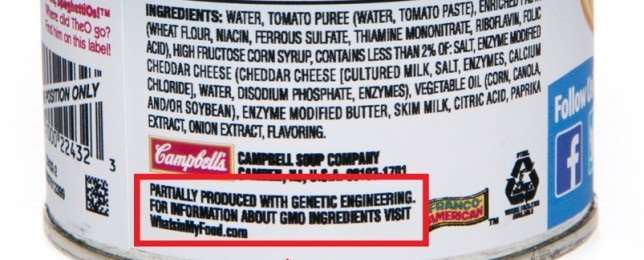USDA has two years to write specific rules
By Diego Flammini
Assistant Editor, North American Content
Farms.com
President Obama signed into law that GMO ingredients must be labeled.
Under the law, items containing GMOs must have “text, (a) symbol or electronic or digital link” that lets customers know a product is made with genetically modified ingredients.
Companies may also include a 1-800 number for customers to call.
According to the Associated Press, the USDA will have two years to write the law’s rules.
The decision for a national GMO law comes about a month after Vermont passed its own version the law.
Vermont’s legislation required clear labeling of GMOs and some feel the national law undermines the state law.

Campbell's has been a vocal supporter of national GMO labeling.
According to the Burlington Free Press, Sen. David Zuckerman described the national law as a “true setback for true transparency in our food.”
Sen. Patrick Leahy told the Burlington Free Press that the national GMO labeling measures is a “very bad deal for customers.”
Others, however, are pleased to see a national GMO bill.
“The American Soybean Association (ASA) congratulates and thanks President Obama for today signing into law the bipartisan GMO compromise bill,” ASA president Richard Wilkins said in a release. “This law will provide stability in the marketplace for both producers and consumers, while avoiding a messy patchwork of state laws. We are happy to put this fight behind us, and continue to provide safe, affordable food for the American people, just as we have for generations.”
National Corn Growers Association president Chip Bowling said the law brings “consistency to the marketplace and prevents the negative ramifications of conflicting state and national food labeling standards.”